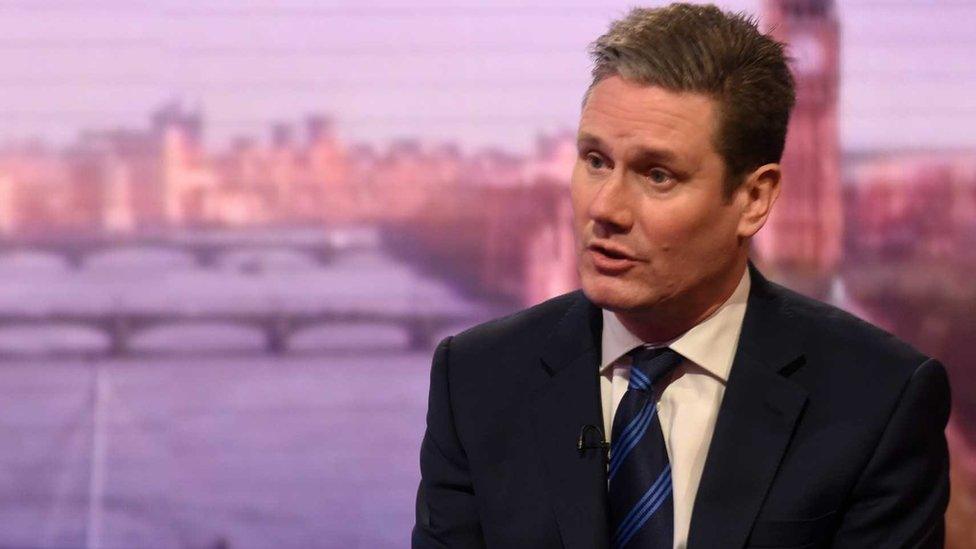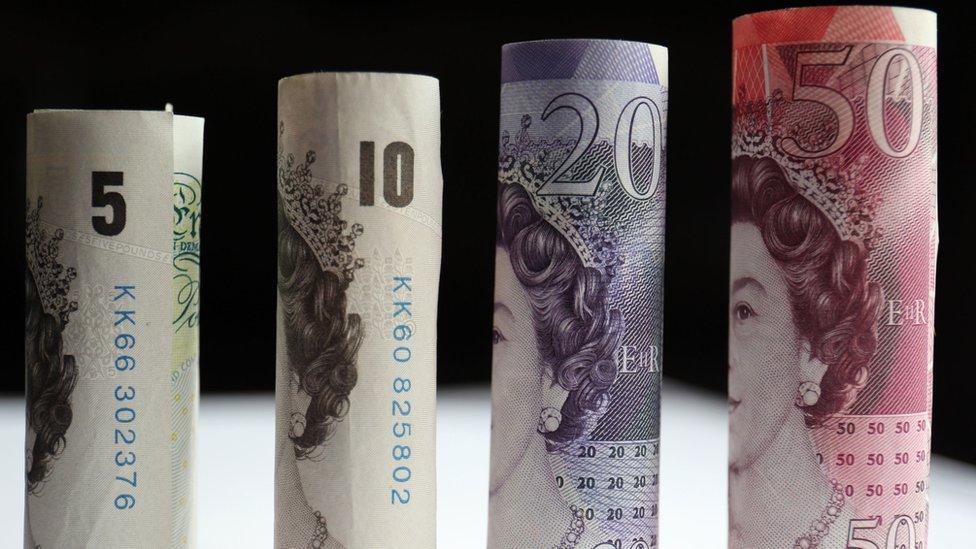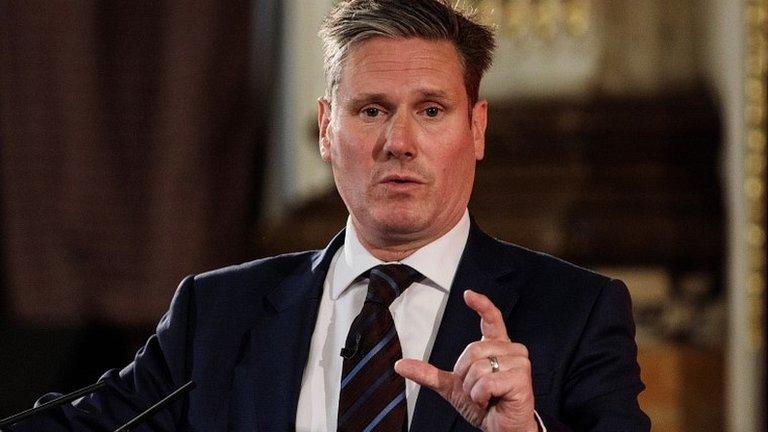Brexit: Labour's Starmer wants talks over customs union
- Published

Sir Keir Starmer is the shadow cabinet spokesman on Brexit
Staying in the EU's customs union should be "on the table" in Brexit negotiations, Labour's Sir Keir Starmer has told the BBC.
Sir Keir, who is the shadow cabinet spokesman on Brexit, told the Today programme the aims he would like to achieve on trade in the negotiations.
He accepted that "unchanged single market membership is not a viable option".
He added that he campaigned "passionately to stay in, but we lost the referendum".
But Sir Keir criticised the government for taking the idea of continued membership of the customs union "off the table".
So first of all, what is a customs union between a group of countries?
It is an arrangement in which they impose no tariffs on imports from other countries in the union. Goods imported from outside the union are subject to the same tariff whatever country they enter through. And once they are inside (once they have cleared customs) they can circulate across borders within the union without any further tariffs.
The EU's single market goes a lot further than this.
It also includes free movement of capital, the right to establish a business and - especially relevant to the Brexit negotiations - the right to work in other member countries, as well as extensive commercial regulation that applies across the EU (and the other countries that are in the European Economic Area).
Sir Keir accepted that full membership of the single market would not be the final result in the negotiations.
Prime Minister Theresa May's speech in January, which set out her negotiating objectives, was widely interpreted by trade experts as implying that the UK would be leaving the customs union.
"I do not want Britain to be part of the common commercial policy and I do not want us to be bound by the common external tariff," she said., external
Having a common external tariff - applying the same tariffs to imported goods regardless of where they enter the customs union - is one of the defining characteristics of such an arrangement.
The reason she gave for her objection was that these elements prevent the UK from striking new trade agreements with other countries.
She did add that she wanted a "customs agreement" with the EU but, without the common external tariff, it would not be what economists would recognise as a membership of a customs union.
Sir Keir wants continued membership to be an option. He did not say it was absolutely essential but that we should "see where we get in the negotiations".
One advantage of continued membership of the customs union would be that exporters of British goods would face no tariffs when they sell into EU countries, so consumers in the UK would not have the prices they pay for EU goods raised by tariffs imposed by the British government.
Rules of origin
A customs union is not the only way to achieve that.
A free trade agreement with no common external tariff could do that as well. The EU has such deals with a number of countries (though there are a small number of goods not covered) including South Korea and Canada (the latter one has not yet come into force).
But a free trade agreement usually leaves exporters having to comply with regulations called "rules of origin". As an example, a British exporter might need to show that their goods really were British in order to get tariff free access to the EU.

There are certainly drawbacks with a customs union. As the prime minister suggested, you cannot do your own trade deals with countries outside it.
In addition, it would not be open to the British government to eliminate tariffs unilaterally. The UK might want to do that to reduce prices for imported goods where there is no British producer to protect from competition - citrus fruit for example.
Some economists say the UK should do it unilaterally for all goods, though there would certainly be some opposition from groups exposed to more competition., external
The pro-Brexit campaign group Lawyers for Britain argue that staying in the customs union, external would "inevitably result in the UK being subject to the continuing jurisdiction of the European Court of Justice (ECJ) over the interpretation and application of the common rules which regulate the customs union."
And of course ending the jurisdiction of the ECJ was one of the prime minister's priorities for Brexit.
It is certainly true that there would need to be some mechanism for enforcement and that would be something outside the UK's legal system. But exactly what it would be could be a matter for negotiation.
- Published25 April 2017
- Published25 April 2017
